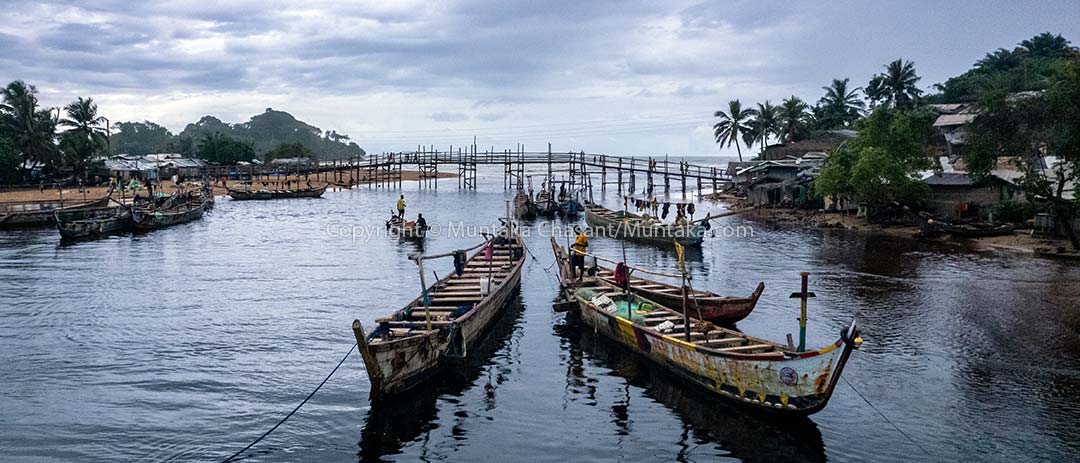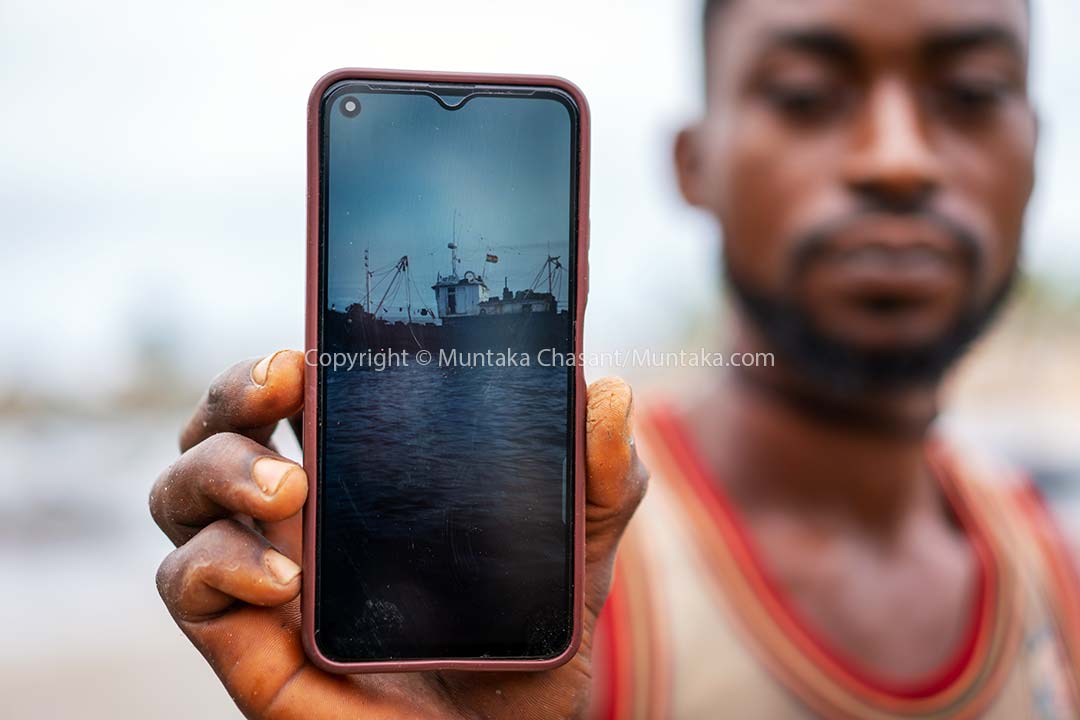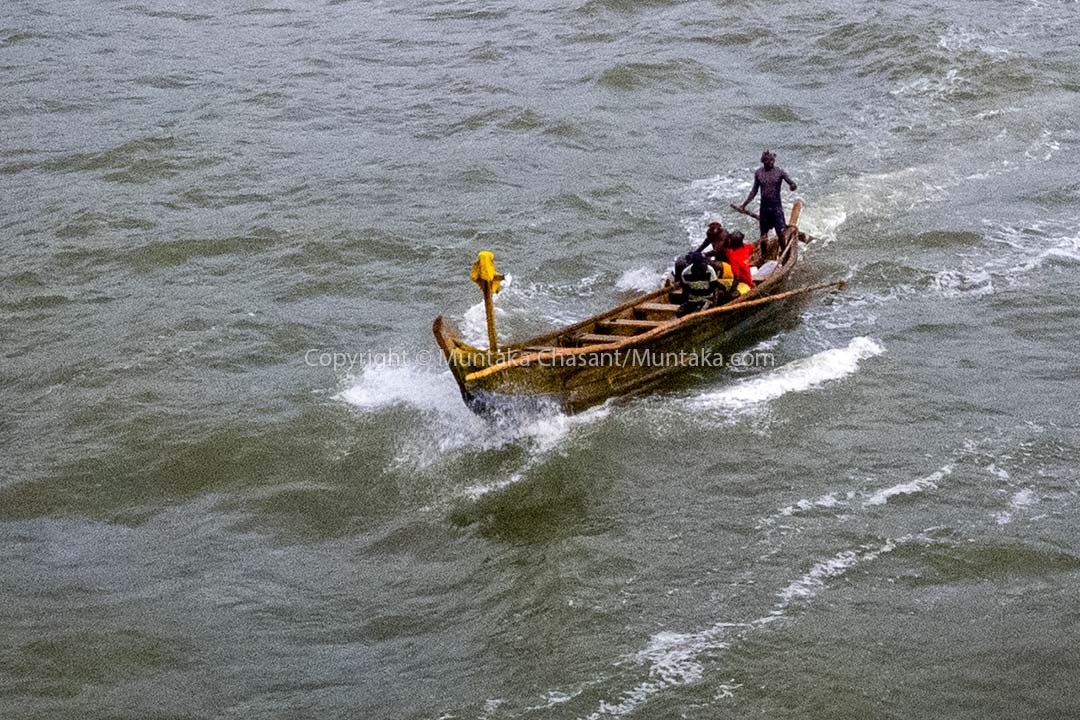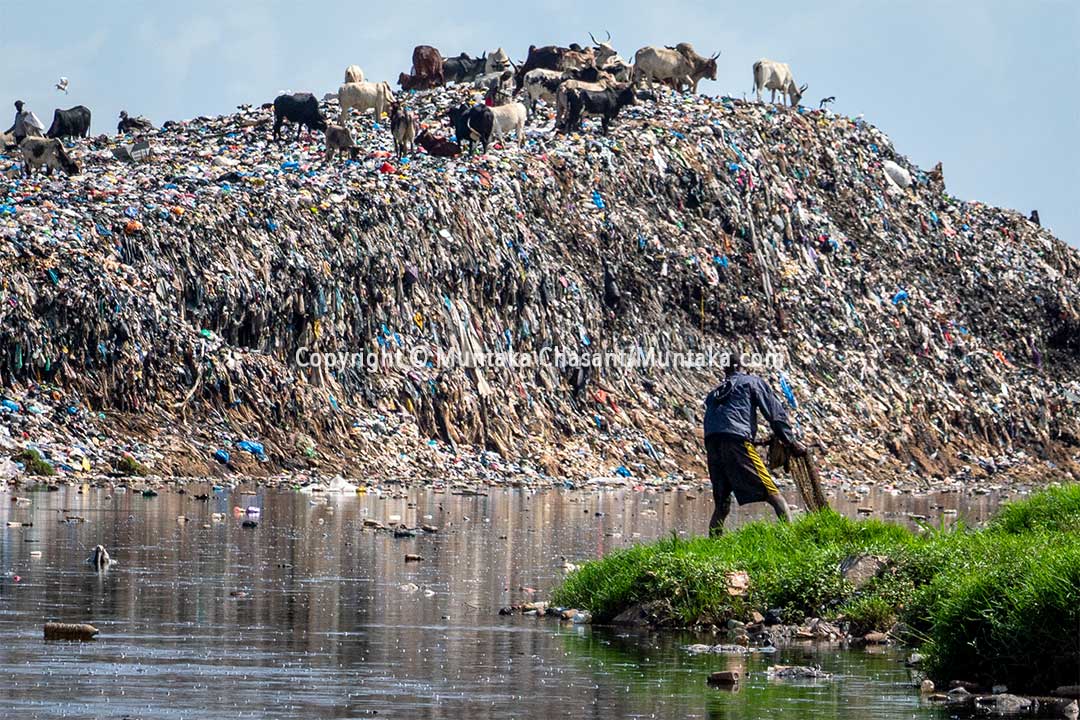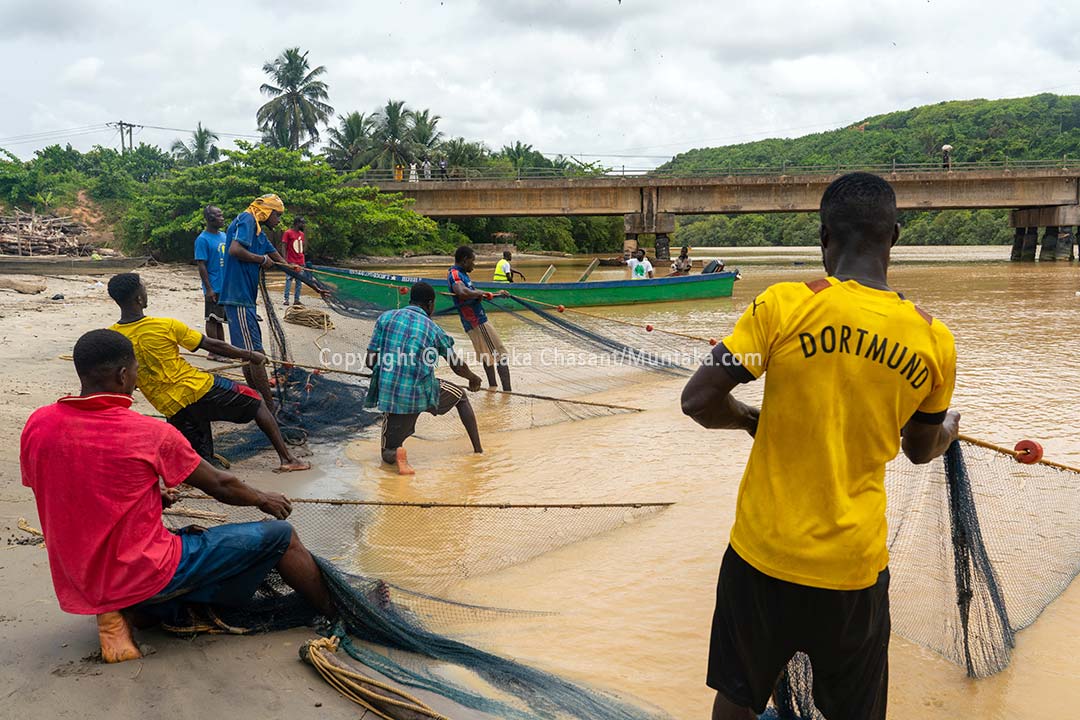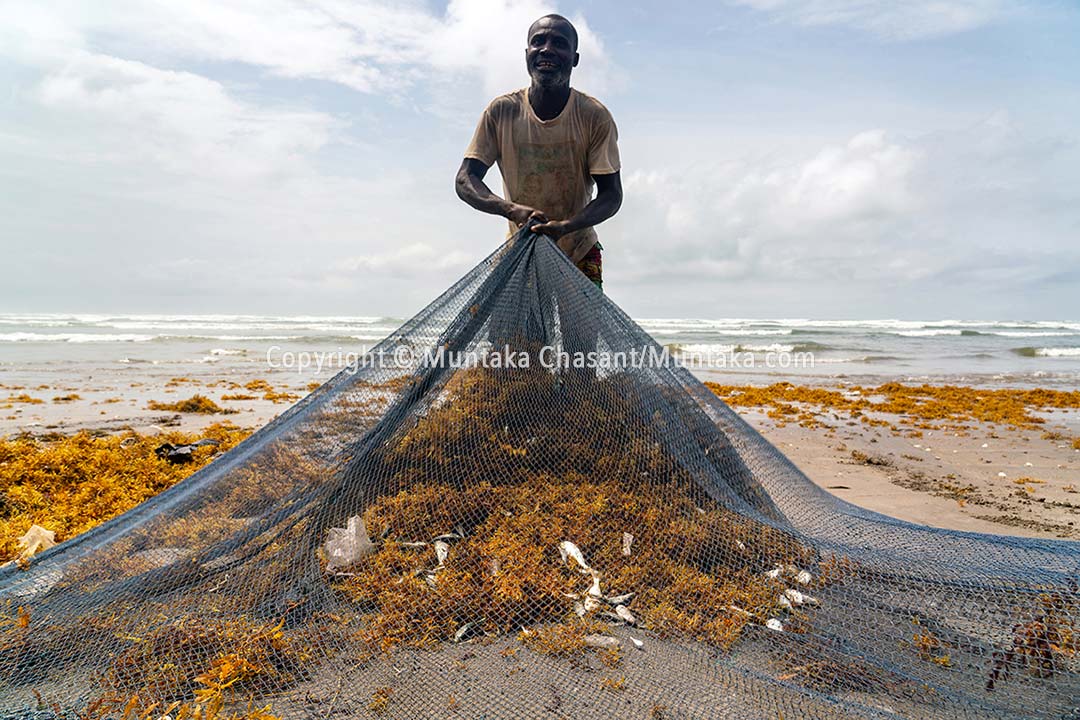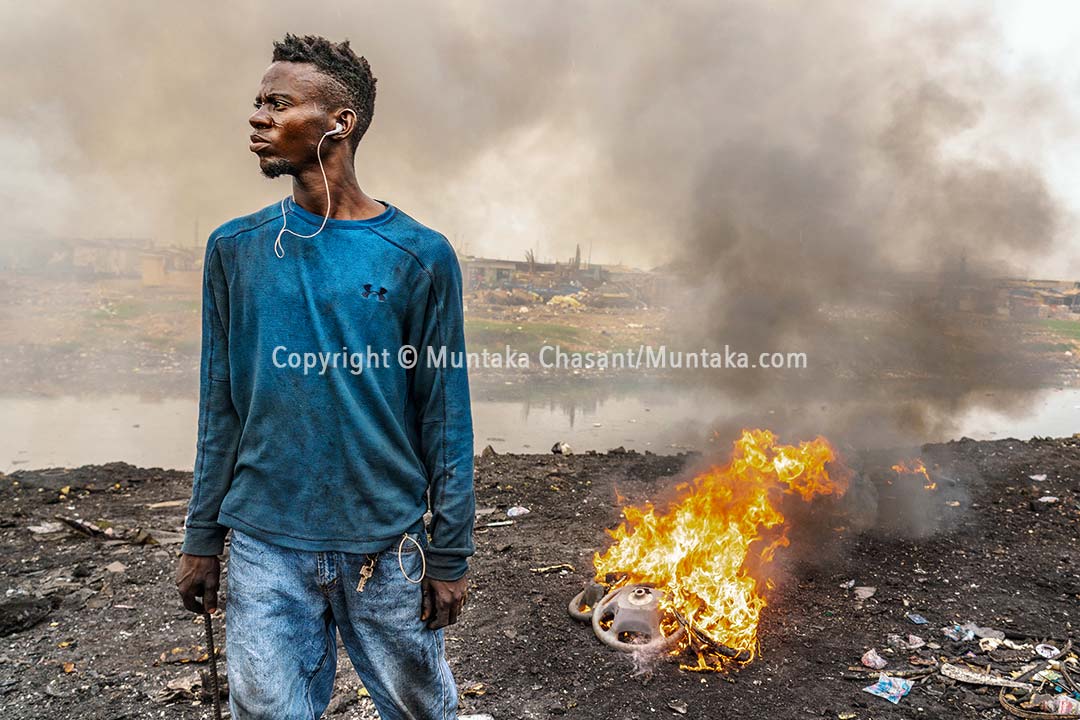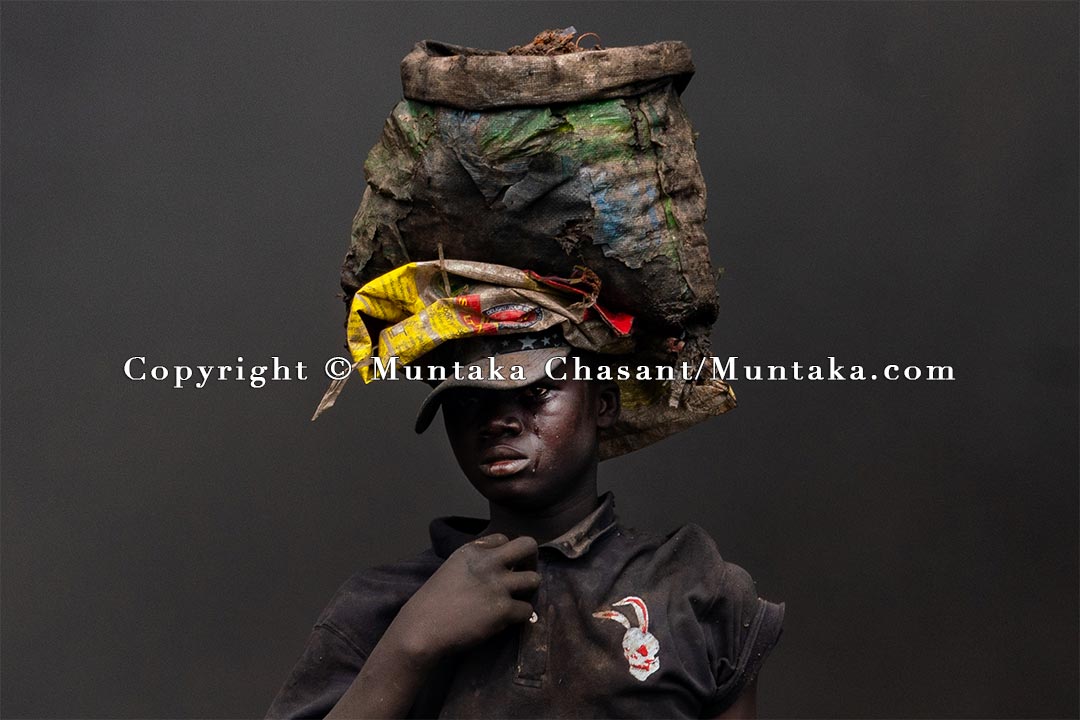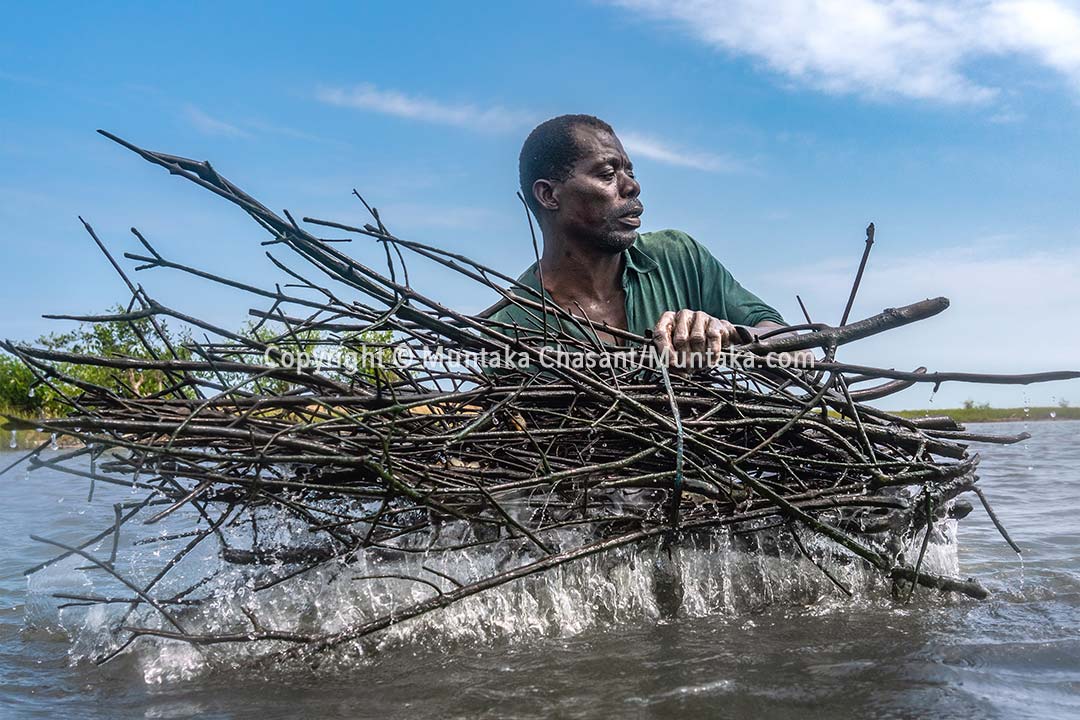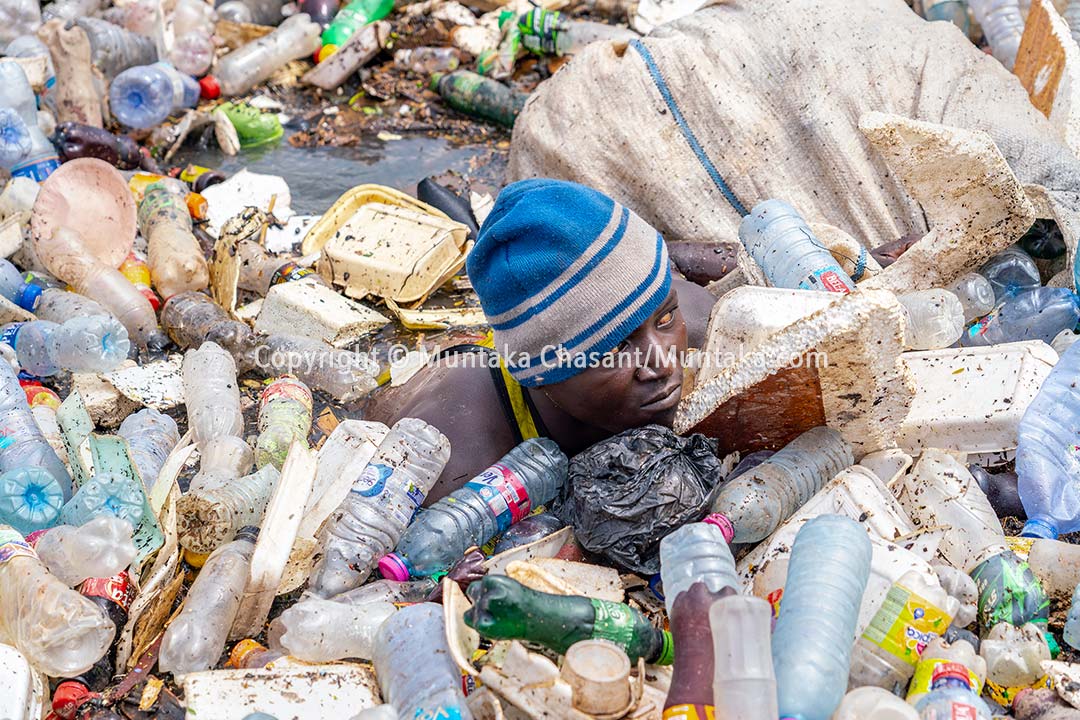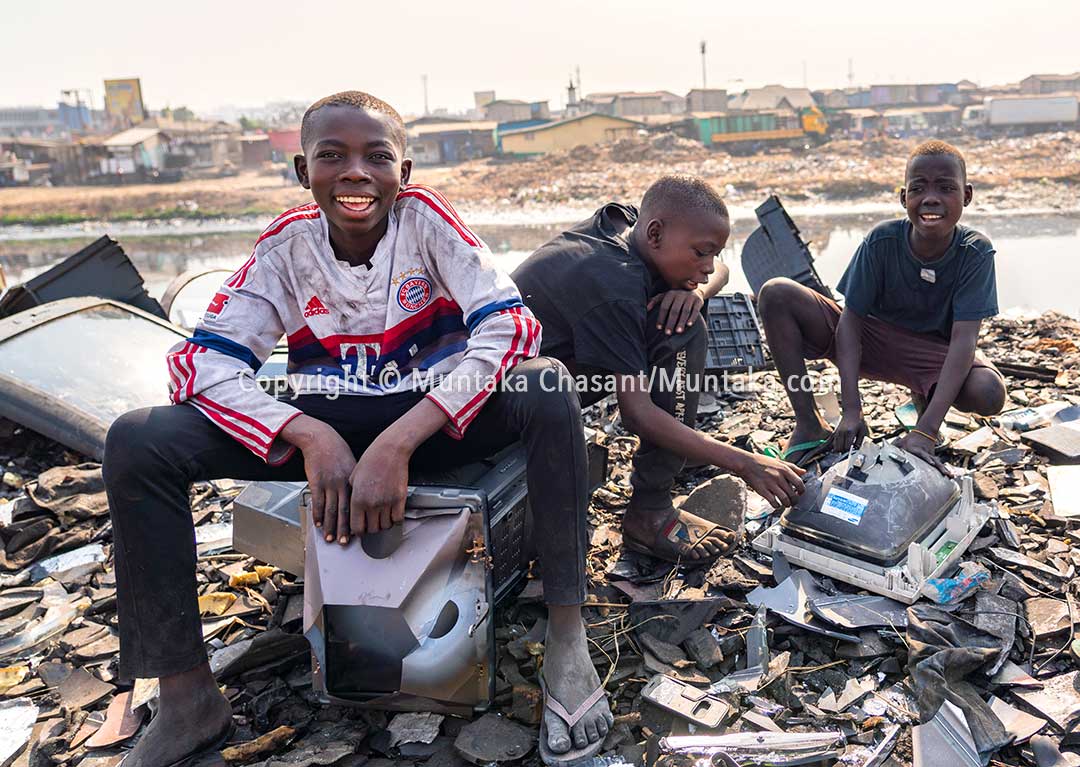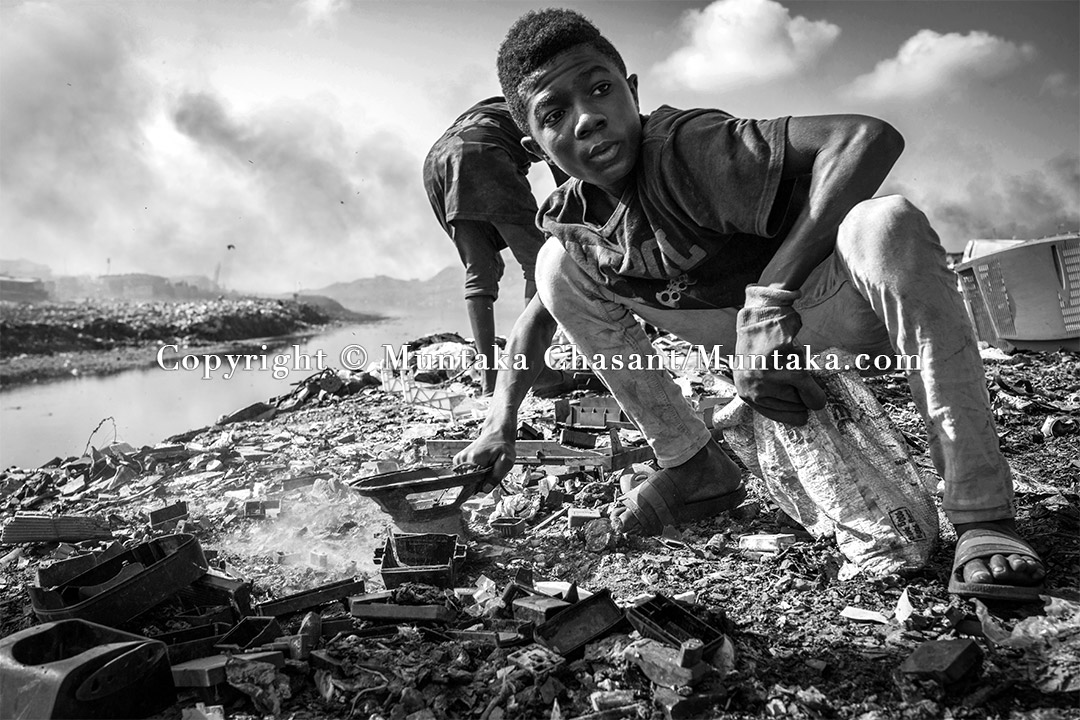Most Read
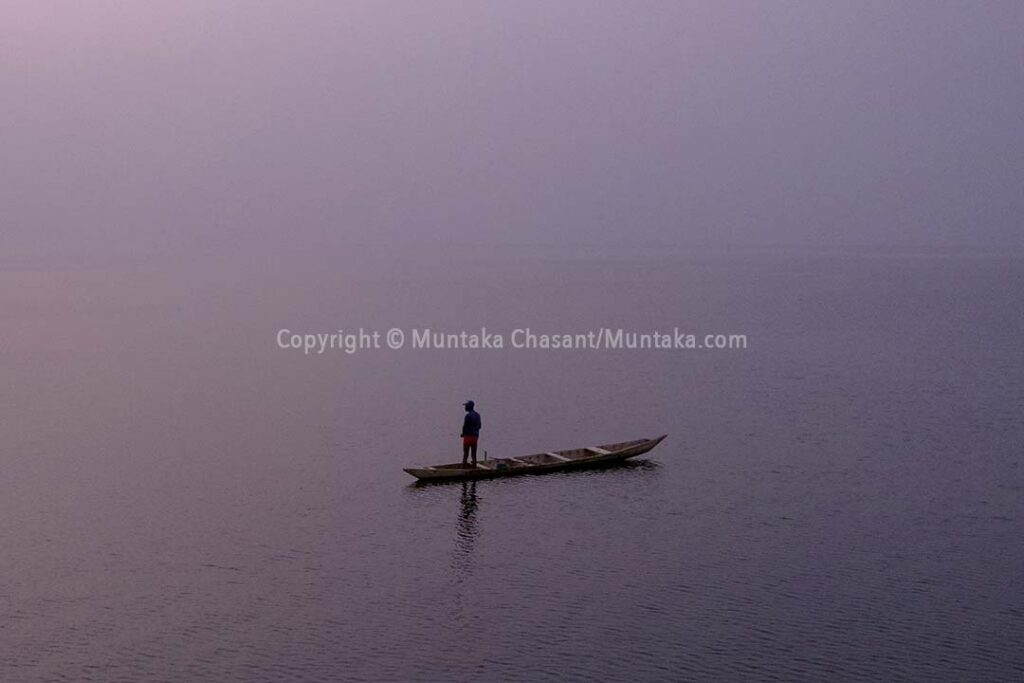
Climate Change Livelihoods
Fisheries and Climate Change in Ghana: Impacts, Causes and Solutions
In a classic Tragedy of The Commons scenario, industrial fishing vessels in Ghana are dredging up small pelagics reserved for the artisanal sector — having already depleted higher trophic species. The vessels tip overboard the unwanted (bycatch). In response, Ghana’s artisanal canoe fishers are resorting to destructive fishing practices, including using bombs to send a shock wave through the water to maximize catch and light to attract shoals of fish. The canoe fishers say they would stop when the Government stops the trawlers. Climate change is magnifying these vulnerabilities to the extent that fishermen no longer go to the sea because 'there is no fish in the ocean'. Is the future already here?
August 1, 2020
August 1, 2020
14 Min read time
Copyright © Muntaka Chasant
In a classic Tragedy of The Commons scenario, industrial fishing vessels in Ghana are dredging up small pelagics reserved for the artisanal sector — having already depleted higher trophic species. The vessels tip overboard the unwanted (bycatch). In response, Ghana’s artisanal canoe fishers are resorting to destructive fishing practices, including using bombs to send a shock wave through the water to maximize catch and light to attract shoals of fish. The canoe fishers say they would stop when the Government stops the trawlers. Climate change is magnifying these vulnerabilities to the extent that fishermen no longer go to the sea because 'there is no fish in the ocean'. Is the future already here?
Laste update: 8 August 2023, 1:13 PM GMT
Stresses on fish populations from overfishing are threatening livelihoods and food security in Ghana. But climate change may be doing far worse by modifying habitats for marine fishes and invertebrates in the Gulf of Guinea through changes in species productivity and distribution.
The uppermost part of the ocean provides a buffer by absorbing more than 90% of the Earth’s excess heat and anthropogenic carbon dioxide1 cooking the planet.
While this helps stabilize Earth’s climate system, this process has warmed our oceans significantly in the last 20 years2.
The trapped heat does not disappear. It recirculates, evaporates waters, melts ice shelves, and reheats the atmosphere.3
The effects do not end there.
Ocean warming now threatens the livelihoods and the food supplies of millions of people in the world’s poorest regions.
How is climate change affecting fisheries in Ghana?
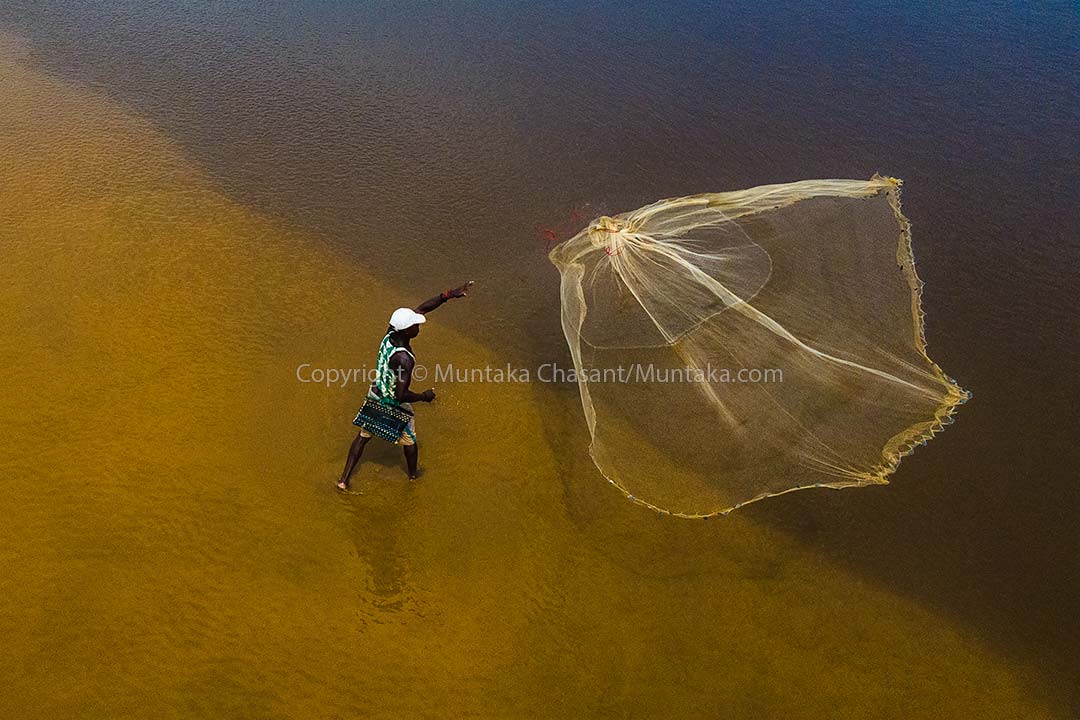
Ghana is in the tropical zone — between the Equator and the Tropic of Cancer. Sun lies almost directly over the country for the entire year. CO2 build-up in Ghanaian waters causes seawater to acidify. This threatens marine life, including shellfish, corals, and plankton.
Warmed waters affect phytoplankton production4, depriving fish of essential food.
Fish populations migrate to cooler areas when they can not thermally tolerate warm waters.
This affects where and who harvest the stock. The migration of fish stock is beneficial to one area/water and detrimental to another.
Ocean warming has shrunk catch potential by a net of 4% (around 1.4 million tons of cumulative loss) over the past 80 years, according to a 2019 study5 that examined 235 populations of 124 species of fish across 38 separate regions.
While some fish species and areas benefit from warm waters, the study adds: “losers outweigh the winners.”
However you look at it, changes in fish abundance and movement is affecting yield and profits, especially in the tropics.
The climate change-fisheries characteristics briefly described above are taking a toll on fishers globally, including in Ghana.
Akwidaa: A traditional fishing village on climate change frontline
Fisheries in Ghanaian waters are responding to ocean warming as catches of commercially important fish species have declined markedly.
Roughly around 12,000 marine artisanal canoes — more than half motorized — operate along Ghana’s coast. They are responsible for at least 70% of Ghana’s total marine supply6.
Akwidaa, a fishing village in the southernmost part of Ghana, is on the frontline of the climate crisis. Bordered by the Ezile Lagoon on one side and the Atlantic Ocean on the other side, the Akwidaa Old Town is frequently flooded by the rising sea level.
Akwidaa canoe fishers are also under stress from illegal light fishing and Chinese-operated fishing vessel incursions into the Inshore Economic Zone (IEZ), an area reserved for the artisanal sector.
China’s Distant Water Fleet (DWF) exacerbates the plight of the poor and vulnerable communities affected by climate change
Having depleted domestic fish stock, China’s vast armada of industrial fishing fleets roam the world’s oceans in search of catches. It’s widely accepted7 they pose a threat to the marine environment across the globe.
Flagged to many countries in West Africa, their illegal8 activities and abuses9 have been documented extensively. Ghana held the largest registry10 — outside China — of these dark11 vessels in 2020.
In Ghana, they have been linked12 to overfishing. They have also been documented to use illegal gear and trawls in areas reserved for canoe fishers. Some of the high-tech deep-water trawl vessels are capable of catching in a day what would normally take a canoe fleet a year to catch.
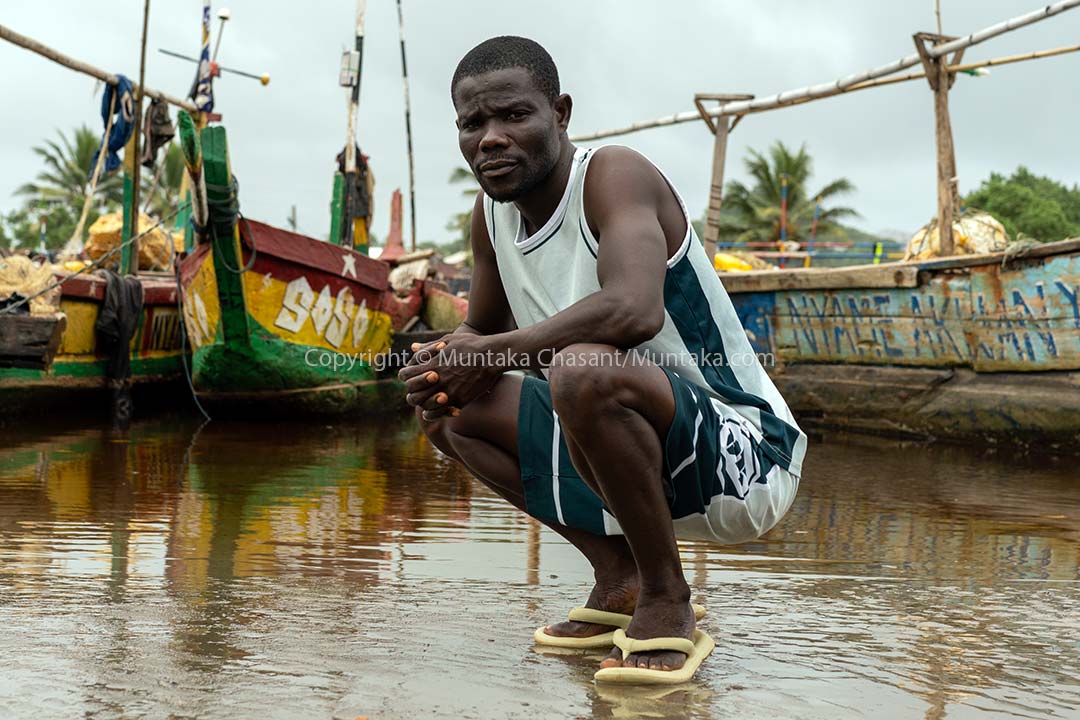
Akwidaa canoe fishers told me their fishing grounds — within the IEZ — are being overrun by Chinese-operated vessels, which regularly damage their set nets. Illegal under the 2002 Fisheries Act14, destroying the fishing gear of canoe fishes could attract a fine of “not less than $5000 and not more than $100,000”.
Mensah, a canoe fisher who managed to capture a photo of a Chinese-operated vessel, which demaged his fishing gear, told me: “They threaten us with pistols and broken bottles when we approach to demand compensation for damaging our nets.”
With the IEZ overfished, desperate canoe fishers, believing they are within their boundary, may be dangerously venturing beyond the areas reserved for them in search of catches. This may be dangerous for the fishers as their canoes are not equipped to travel that far out to sea. They rarely carry lifejackets. But they do this out of desperation, and that’s where my ethnographic interest lie.
Destructive fishing practices
Per trawling, light fishing, and the use of dynamite put pressure on the productivity and species composition of the fish population in Ghanaian waters.
“The fishermen hate pair trawling because the Chinese-operated vessels catch the smaller fish meant for them together with the bigger ones,” Said Dede, an Accra Jamestown-based fish trader.
Dede added: “They then throw the smaller ones back into the ocean. But the smaller fish don’t survive, totally wasting them.”
The phenomenon of incidental catch and mortality of fish Dede explained is known as bycatch. The World Wildlife Fund estimates that around 40%15 of fish caught worldwide is bycatch.
Bycatch is illegal under Ghana’s Fisheries laws16.
‘Saiko’
‘Saiko’ in Ghana is the illegal transshipment of unwanted bycatch from industrial fishing vessels to designated artisanal canoes at sea.
The bottom trawlers — licensed to target demersal stocks — scoop up small pelagics such as sardinellas17 that are reserved for the artisanal sector and sell them back to the fishermen.
Artisanal fishers return home empty-handed because the huge trawlers had already scooped up the small ‘amanes’ and other pelagics their livelihoods depend on.
This puts the trawlers in direct competition with the canoe fishers. It is destructive because the artisanal sector is small-scale, and their small wooden canoes are no match for the industrial fishing vessels.
It’s like going to a Samurai katana fight with a sword made out of balsa wood.
Fisherman fish in the Polluted Korle Lagoon due to a decline in marine fish stock
Tired of plastic debris turning up in his cast net when he goes out to sea, the man in the photo above now fishes in the heavily polluted Korle Lagoon, one of the most polluted water bodies on earth.
Accra’s major drainage channels empty their waste into the Gulf of Guinea through the Korle Lagoon.
With no fish to catch in the Gulf of Guinea, artisanal fishermen turn to the mercury-contaminated Ankobra
With no fish to catch in the ocean, desperate artisanal fishermen in a small town on the mouth of the Ankobra now cast their nets over the contaminated river.
One of Ghana’s major rivers, the Ankobra, is polluted following years of use of mercury-based amalgamation in illegal artisanal gold mining (Galamsey). Communities along the Ankobra River once relied on its abundant fish stocks for food and jobs.
Sargassum seaweed invasion worsens poverty in fishing communities
Starting from 2011, record amounts of pelagic sargassum have been blanketing the surface of the tropical Atlantic, extending from the Gulf of Mexico to West Africa, forming the “the great Atlantic Sargassum belt”18.
The influx has had significant socio-economic impacts on historical fishing communities downstream, including on Ghana’s southwestern coast, where towns and villages rely on artisanal fisheries as a source of jobs and food.
Among the impacts, beach seine fisher’s nets are hard to pull in because of the weight of the sargassum trapped in the net. Offshore, they snag fishing lines and clog up outboard motors. On the shore, they rot, releasing stinky hydrogen sulfide gas, which has been linked to respiratory and neurological symptoms in the Caribbean (Dabor et al., 2020)19.
Coincidentally, large mats of sargassum seaweeds began landing on Ghana’s shores around the same time offshore drilling started off the southwestern coast. This made affected fishing communities think that oil exploration companies were responsible, causing tension between the communities and oil companies20.
However, according to Gower et al. (2013)21 and Wang et al. (2019), sargassum biogeography in the tropical Atlantic could be attributable to many factors, including changing ocean temperatures and anomalous nutrient discharges from the Amazon River.
Tragedy of the commons and fisheries in Ghana
Tragedy of the commons is a situation where individuals acting based on self-interest overuse shared resources, ultimately leading to depletion.
Back in Accra, I asked Jamestown fishermen about ‘saiko’ and a whole host of other destructive fishing practices.
The response was straightforward: “we will stop light and blast fishing when the Government stops the trawlers from stealing our catch.”
We will stop light and blast fishing when the Government stops the trawlers from stealing our catch.
accra jamestown fishers
What is the way forward?
Changes in oceanographic conditions due to climate change are expected to exacerbate the declining reproduction patterns and distribution of fish populations in the tropics.
The Guinea Currents region is projected to suffer a significant decrease in catch potential by the mid-century.22
Biogeographical distribution of fish species may result in a redistribution of catch potential towards the high altitude, jeopardizing food security and livelihoods in the tropics.23
Tackling all the problems highlighted in this post depend largely on what occurs outside the fishing industry: policy, enforcement, and multilateralism.
But one thing is certain: Ghana needs urgent adaptive fisheries reforms to mitigate the direct impact of climate change — including rebuilding overfished populations.
And to stop industrial trawlers from stealing small pelagics reserved for the artisanal sector.
Copyright © Muntaka Chasant
Sources
- https://science.sciencemag.org/content/363/6432/1193/tab-article-info
- https://www.ncei.noaa.gov/news/ocean-heat-content-rises
- https://www.climate.gov/news-features/understanding-climate/climate-change-ocean-heat-content
- https://www.fisheries.noaa.gov/resource/data/forecast-fish-shellfish-and-coral-population-responses-ocean-acidification-north
- https://science.sciencemag.org/content/363/6430/979
- https://www.fao.org/fishery/facp/GHA/en
- https://www.newsweek.com/chinas-rampant-illegal-fishing-endangering-environment-global-economy-opinion-1776034
- https://www.youtube.com/watch?v=nUClXFF2PKs&ab_channel=BBCNews
- https://www.youtube.com/watch?t=269&v=FgiYIEPoi50&feature=youtu.be&ab_channel=ABCNewsIn-depth
- https://cdn.odi.org/media/documents/chinesedistantwaterfishing_web.pdf
- https://chinadialogueocean.net/en/fisheries/10050-investigation-illegal-fishing-in-ghana-pt-1/
- https://www.crc.uri.edu/download/GH2014_SCI082_CRC_FIN508.pdf
- http://myjoyonline.com/marine-fishing-ghana-to-observe-closed-season-with-other-west-african-coastal-countries/
- https://fishcom.gov.gh/wp/laws-regulations/
- https://wwf.panda.org/our_work/oceans/smart_fishing/how_we_do_this/good_governance2/getting_the_right_management_in
- https://www.mofad.gov.gh/category/fisheries-laws-and-regulations/
- https://www.researchgate.net/publication/342968540_Fish_species_transshipped_at_sea_Saiko_fish_in_Ghana_with_a_note_on_implications_for_marine_conservation
- https://www.sciencedirect.com/science/article/pii/S0079661120300070?via%3Dihub#b0595
- https://www.tandfonline.com/doi/abs/10.1080/15563650.2020.1789162
- https://academic.oup.com/cdj/article-abstract/48/3/406/310674
- https://www.tandfonline.com/doi/abs/10.1080/2150704X.2013.796433
- https://www.ipcc.ch/site/assets/uploads/2018/02/WGIIAR5-Chap6_FINAL.pdf
- https://pdfs.semanticscholar.org/ff07/a2cbe82b9c4fd826292726aa63ebd4fae9fc.pdf
August 1, 2020
14 Min read time


